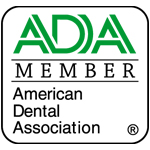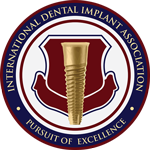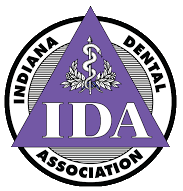
THE FIRST NEGATIVE health effect we usually think of in connection to smoking is lung cancer, but it actually harms every system in the body, and oral health is no exception. Smoking (or any kind of tobacco consumption, including chewing tobacco and vaping) is a serious risk factor for a lot of oral health problems.
Smokers Are More at Risk of Oral Cancer
Despite lung cancer being the high-profile risk associated with smoking, 80% of oral cancer diagnoses are connected to a smoking or chewing tobacco habit. Oral cancer can involve early symptoms like the sensation of having something stuck in the throat, difficulty chewing or swallowing, numbness, swelling, unusual white patches in the oral soft tissues, or persistent mouth sores or pain. Regular dental exams are critical for catching oral cancer early.
A Strange Oral Health Complication: Smoker’s Keratosis
Another less well-known effect smoking can have on oral health is smoker’s keratosis, or white patches on the roof of the mouth. This condition is still a mystery to medical science, but it could be the result of inflamed mucous glands. The white patches usually aren’t painful, but they may be precancerous.
Gum Disease Is More Likely With a Smoking Habit
According to the CDC, around 47% of adults over 30 have some form of gum disease. Smoking doubles the risk of developing it and also makes it more difficult to treat. As it progresses, gum disease can cause serious damage to the gum tissue and even result in bone loss in the jaw and tooth loss. If the bacteria in the mouth gets into the bloodstream through the inflamed gums, it can even jeopardize overall health.
Is Vaping a Safe Alternative?
While vaping may not be as harmful to oral tissues as traditional smoking, it still isn’t safe. Nicotine in any form reduces blood flow, which starves the gum tissue of oxygen and nutrients and slows down the healing process, making tissue death and gum recession more likely. It also dries out the mouth, which can lead to another set of problems from tooth decay to bad breath.
Smoking Doesn’t Only Harm the Smoker
Many smokers decide that the health risks of their habit are acceptable, thinking they will only affect them, but secondhand smoke has serious effects too. Studies suggest a link between regular exposure to secondhand smoke and the development of cavities. Beyond oral health risks, there are also broader health risks — particularly for small children and infants, from asthma attacks all the way up to SIDS.
It’s Never Too Late to Quit
Risk factors can’t always be controlled. We can’t help what our genetics are or that we grow old, but smoking is a major risk factor for so many health problems, and unlike aging and genes, we can avoid smoking or stop if we’ve started. It’s definitely better never to start in the first place, but even a longtime smoker can significantly improve their health outlook by quitting!
You Don’t Have to Do It Alone
Quitting something as addictive as a smoking habit is difficult, but there are so many allies and resources available to help, including friends, family, counselors, and a wealth of useful information online. Another great resource is the dentist, who can check for early symptoms of oral health problems and help you work to keep your mouth healthy!






